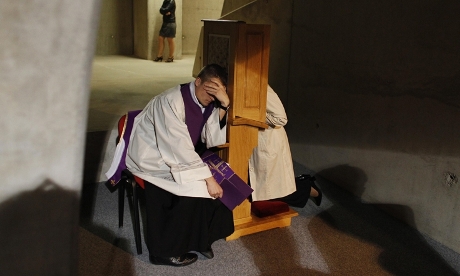The confidentiality of the confessional will no longer stop Australian Anglican priests reporting serious crimes they hear in confession to police.
Representatives of the Anglican Church of Australia approved this on July 2 at the church’s General Synod in Adelaide.
The ruling covers serious offences that would attract a jail term of five years or more, including domestic violence, child pornography and child sexual abuse.
Sydney barrister Garth Blake, who proposed the amendment, said it would ensure the church did not “act as a cloak” for offenders.
“I’ve been involved in dealing with child abuse in churches since 1997 and it seemed to me that protecting children and the vulnerable takes precedence over the confidentiality of confessions,” Mr Blake said.
But the legislation will only become active once adopted by individual dioceses.
The current church law for Australian Anglicans is that the confession of a crime is to be kept confidential, unless the person confessing consents to disclosure.
But the new law would allow priests to report crime if the person confessing has not told police and the church’s director of professional standards about it.
Adelaide Archbishop Jeffrey Driver said he understands the importance of the confessional, but he believes the new church law is a healthy step.
The Broken Rites advocacy group welcomed the Anglican move, but called for mandatory civil reporting laws.
Several years ago, then-Australian Prime Minister Julia Gillard slammed what she called the use of the confessional to avoid reporting abuse.
She said it was a “sin of omission” and all adults have a duty to protect children.
Cardinal George Pell, who was then-Archbishop of Sydney, said at the time that if information is received outside the confessional by Catholic priests, it could be passed on.
But the seal of the confessional is absolutely inviolable, Cardinal Pell emphasised.
He said priests should avoid hearing confessions of colleagues suspected of being paedophiles.
Writing on the issue in 2013, Rome canon lawyer Cathy Caridi noted that priests who repeat what they hear in confession in such a way as to identify the penitent are automatically excommunicated.
But confessors can encourage penitents to turn themselves in to authorities, or even make sacramental absolution contingent on it, she added.
Sources
